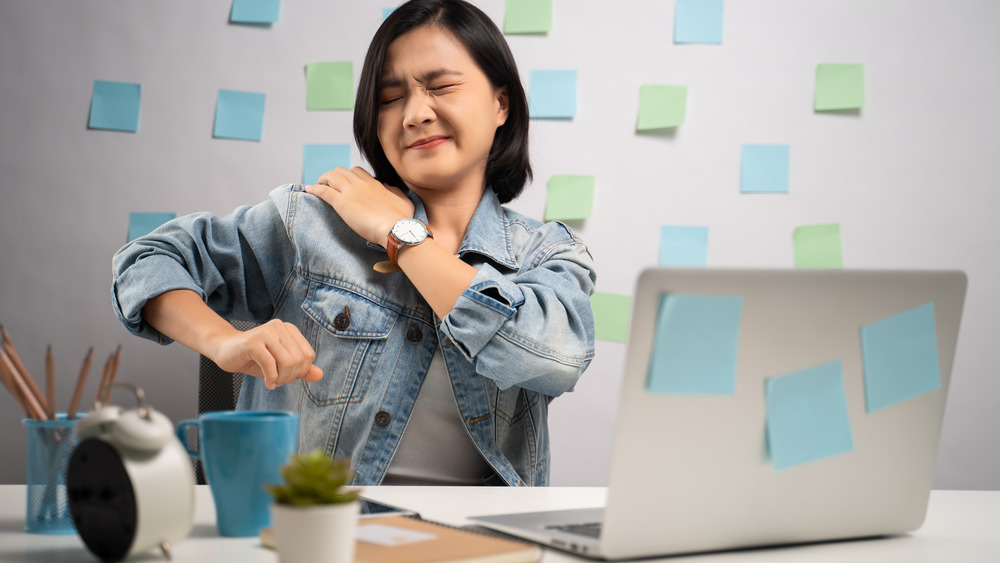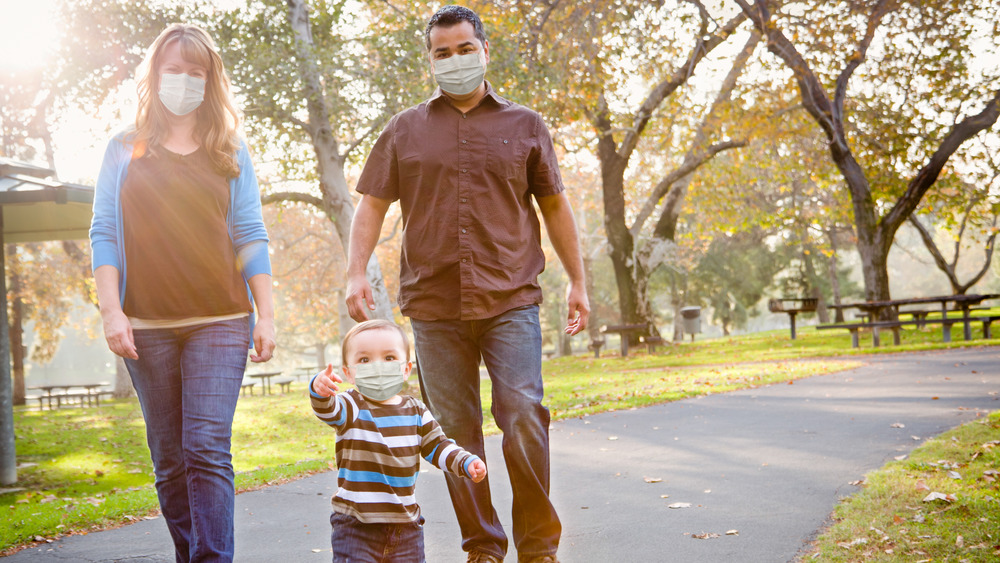Is The Pandemic Really Making You Age Faster?
It has been just over a year since the first COVID-19 case was confirmed in the United States, but if it feels like it was forever ago, you're not alone. Have you noticed new under eye bags and wrinkles, cracking joints, unexplained back pain, brain fog, forgetfulness, anxiety or depression? If you're like most people, you've likely observed one or more of these problems. You see, living through a pandemic is not natural. Though your body and mind are resilient, that resiliency does not come without a price. Through multiple lockdowns, rounds of quarantining, isolation, tragic loss, food and job insecurity and on and on, the chronic high levels of stress you've experienced may have accelerated your aging process.
Perhaps the most visible first sign of accelerated aging comes from physical skin changes. Dermatologist Mona Gohara M.D., told InStyle that skin and hair changes during stressful periods are not surprising because, "Cortisol [the stress hormone] is pro-inflammatory, meaning it will make acne and any other skin condition worse, but it also accelerates aging and can cause hair loss and hair thinning."
How your body reacts to chronic stress
But elevated cortisol levels alone are not responsible for the changes. A lack of sleep or stress-induced insomnia also plays a role. Dr. Gohara says, "When we sleep less, we have less melatonin, which has antioxidant properties protective against skin aging, and our collagen has less time to repair and rebuild — that's why it is called beauty sleep: this happens at night! — and our skin cells don't regenerate as quickly." So there's no need to do a double take in the mirror. The lack of brightness and bounce in your skin is very real — and wearing masks, which is necessary, is also causing clogged pores and creating "maskne."
The pandemic is also taking a toll on your joints. With gyms across the country shutting down for months on end, many saw the end to their fitness routine as they knew it. It either led people to come up with creative new ways to stay active, or ways to make their couches more comfy. Couple that with people working from home and sitting for prolonged periods of time and you have a recipe for joint disaster. Jennifer Hanway, a holistic nutritionist, told NewBeauty, "The combined effects of less exercise and daily movement result in loss of lean muscle mass, reduced circulation and a sluggish lymphatic system." All of these can make you feel older and unlike your usual self.
How to slow pandemic aging
And to make things worse, a lack of mobility can also increase the stiffness you experience when you finally do start moving around. The pandemic has led many people to incorporate mental health walks, but the cold weather and fear of running into mask-less people on their route has created challenges. Thankfully, the pandemic has redefined the way people exercise, with an increase in virtual live and on-demand classes ranging from yoga and barre, to HIIT and rebounding workouts.
So what can we do to reverse or slow pandemic-fueled aging? The tenants are the same as they always were: try to eat a well-balanced diet, make an effort to move daily and exercise regularly, take breaks when needed (from doom scrolling, work, and the news), and be gentle with yourself. Everyone is feeling the effects of this pandemic one way or another, so be gentle with your expectations and with yourself, after all, you're doing your best. It's also important to acknowledge and address any mental health concerns which may arise. Improving your overall physical health will positively influence your mental health as well.



